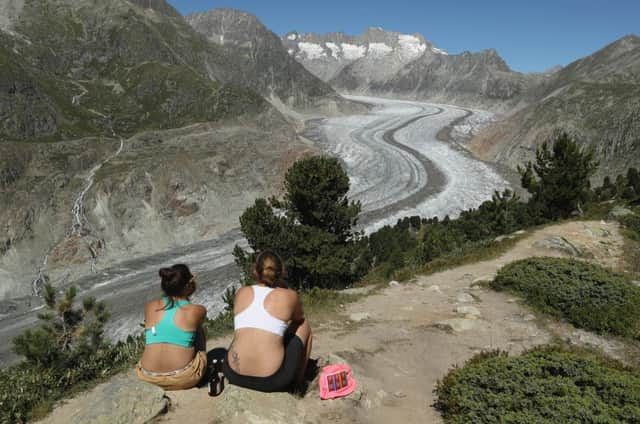Stuart Haszeldine: Fossil fuel industry must capture its carbon


Along with the hottest temperatures comes ever-increasing sea level rise, and the most acidic seas for 20 million years. This is a climate crisis, and it is very much not under control.
The cause is clear – over-extraction of fossil carbon – as coal, gas, or oil. But why has the world let the producers of the problem escape liability for the problem? The blame is placed on the users of fossil carbon rather than the producers. Call it blaming the addicted users, and ignoring the drug suppliers.
Advertisement
Hide AdAdvertisement
Hide AdGlobal emissions of greenhouse gases are larger than ever and continuing to increase, in spite of growth in clean energies and efficiency of use. However the capture of an ever-increasing percentage of carbon emissions is also happening worldwide, and at feasible prices. That needs to be augmented by a reason for business to securely store fossil carbon.
In a report as part of a themed issue of Philosophical Transactions of the Royal Society of London on the Paris Agreement, researchers from the University of Edinburgh analyse different policy mechanisms. They conclude that carbon pricing and carbon trading permits have not been effective or rapid enough to enforce storage of greenhouse gas emissions. A simple scheme, in which fossil fuel producers are given a certificate of storage for each tonne of carbon, could help meet climate targets set out in the Paris deal.
Each certificate would require the fossil-fuel producer to arrange carbon dioxide storage, for a small percentage of greenhouse gas emissions derived from their fuel products, in secure deep geological burial.
Such a scheme creates a competitive market in carbon dioxide storage, to drive down costs. That could help meet the terms of the 2015 Paris deal, in which governments worldwide signed up to net-zero emissions.
Carbon capture and storage (CCS), one of the suite of technologies that will enable this, injects carbon dioxide in liquid form deep below ground.
This is already operating in many countries but, says the study, the speed of construction is 100 times too slow to meet the 1.5 degrees Celsius target required by the Paris deal.
A certificate scheme could rapidly deliver direct results at low cost, the study found. Excess greenhouse gases can also be stored by chemical reactions to make weathered rocks or by enhancing the carbon content of soils.
The Edinburgh research shows that CCS is rapid and cost-effective for storage of the immense tonnages required. These proven methods are secure for thousands of years into the future, and injection tonnages can be adjusted up or down as required.
Advertisement
Hide AdAdvertisement
Hide AdCarbon storage is a reliable remedy that the world needs to embrace if we continue to over-extract fossil fuels.
Carbon storage can be embedded into our existing industries with very little change – the alternatives – to allow ever-increasing climate change – are much worse.
Governments need to rapidly enforce carbon storage to succeed. It is as simple as this: without carbon storage the world will not restrict global temperature rise to below 2C.
Stuart Haszeldine is professor of carbon capture and storage at Edinburgh University
